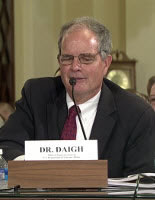Surgeon’s Abilities
In the meantime, concerns continued to be raised about the surgeon’s abilities. In November 2018, in preparation for renewing the surgeon’s privileges, a second VISN ophthalmologist reviewed the documentation of a sample of the surgeon’s cataract surgeries and laser procedures. The reviewer noted long surgery times and inadequate or missing documentation.
According to the report, “The second VISN ophthalmologist described the surgeon’s documentation for the five laser procedures as ‘maybe’ demonstrating a lack of clinical judgment; and told the OIG team that it did not appear that good care was provided.”
The chief of surgery acknowledged there were concerns regarding the surgeon’s judgement, technique and management but continued to allow the surgeon to perform laser procedures through February 2018. The surgeon also continued to perform cataract surgeries through November 2018 before relinquishing surgical privileges. In December 2018, however, the surgeon was reappointed and allowed to perform clinic-based laser procedures for two months before being fired in March 2019.
According to OIG investigators, this two-year odyssey could have been avoided, because the facility’s clinical leaders knew prior to hiring the surgeon that there were performance and training deficiencies.
“Specifically, the COS knew that the surgeon did not have the required residency training,” the report states. “The lack of required training, coupled with ‘weak’ references, should have prompted a more proactive, real-time evaluation of the surgeon’s skills and competence during the initial [focused professional practice evaluation (FPPE)]. The former chief of surgery; however, elected to complete the initial FPPE via a retrospective chart review, which may not have been sufficient to proactively identify deficits in the surgeon’s technical skills to perform cataract surgeries.”
According to the report, the chief of surgery considered terminating the surgeon six months earlier than actually occurred but, instead, opted for another performance review. The reason for this hesitancy, according to interviews by investigators with facility staff, was because facility leaders needed the services of the surgeon’s spouse, who had been hired at the same time in January 2017, and they worried that firing one would mean losing the other.
The chief of surgery denied that this affected the facility’s decision.
While suboptimal cataract surgery might seem less serious than the recent incidents that have led to patient deaths, OIG officials testified to the subcommittee that they are linked by systemic issues in VA in evaluating and credentialing its clinicians.

John Daigh, MD
“While VA needs to improve their efforts to collect and review all required documentation related to the credentialing process, more emphasis should be given to understanding the quality of the provider’s prior practice through interviews and references from appropriate sources,” explained John Daigh, MD, assistant VA inspector general for healthcare inspections. “VHA needs to look for opportunities to adopt a ‘show me’ attitude when granting privileges. For example: observing a colonoscopy or reviewing the interpretation of scans or pathology slides should be comprehensively adopted in early stages of a provider’s employment.”
Most concerning, Daigh emphasized, are issues where substandard care was provided for months without VHA leadership taking action.
“Technicians and nurses tell my staff that they have no reason to speak up about poor provider care when they see inaction by providers themselves, or from facility leadership,” he said. “This problem speaks to the need to consider changes to the patient safety and quality assurance programs. They must work together to make sure veterans receive quality medical care.”
According to Daigh, it’s time for VHA to conduct a serious review on how it implements its credentialing policies. One way for VA to improve its practices, he said, would be to appoint a national leader for each medical specialty whose sole responsibility is to assure the quality of that practice across the entire VA healthcare system.


VA has a tendency in hiring amateurs for critical positions which leads to incompetents candidates.
Be careful about making public comments if you are a practitioner. The VA Hospital Directors are getting fired at a significant rate, and not surprisingly they do not like it.
Doctors and midlevels are “to be seen and not heard”, in modern VA leadership and management theory and practices.
If managers want any critical feedback (which they do not), they will ask you for it.
Until then, shut up.